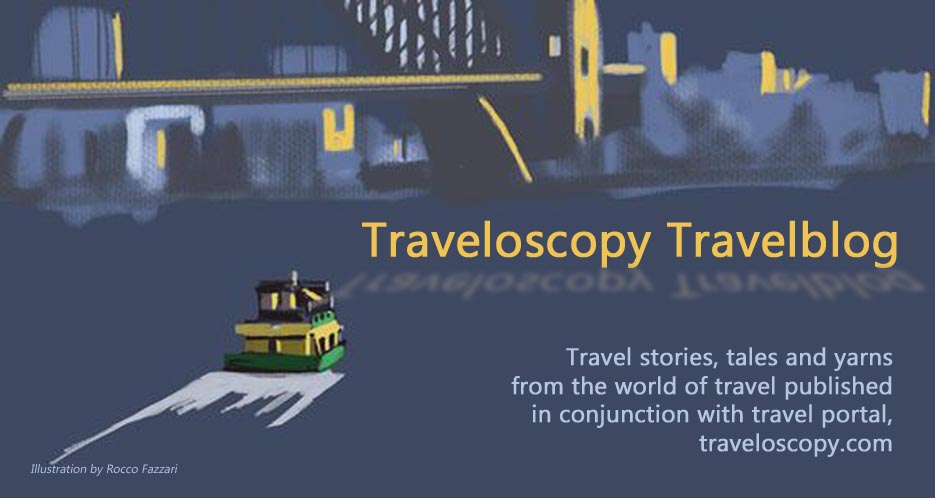MAURITIUS ANYTHING THAN DEAD AS A DODO
david ellis
A SIGN outside a building in Port Louis on Mauritius had us wondering, proclaiming proudly: "We glue broken Virgins."
Thankfully, and to our relief, it turned out to be a repair shop for spiritual statues…
And down the road, a plaque below a statue of Queen Victoria read: "To the Memory of Our Beloved and Much Regretted Queen Victoria."
That something can get a little confused in translation on this tiny dot in the middle of the Indian Ocean probably isn't surprising. It's been handed down through the Dutch, the French, and the British, and is today populated by descendants of all of these as well as Indians, Singaporeans, Malays, Thais, Chinese and Africans. Plus probably a few we missed on a visit to this almost-secret paradise.
And we suspect some possible Aussie unionist initiative at one stage in the island's cultural affairs: with its eclectic mix of religions – Christians, Hindus, Buddhists and Muslims – it was once decided that in the spirit of multi-culturalism, everyone could celebrate each other's religious festivals' public holidays.
It reached the point where so many people were taking so much of the week off work, that the government finally put a stop to it before the place went broke.
The Dutch were the first Europeans to occupy Mauritius, in 1598 establishing a base to protect their precious spice ships on the run from the East Indies. And needing fresh food, they turned to the flightless Dodo bird, that scaling-in at around 20kg gave an easy and much-needed meat supply – never having previously had a predator, the poor old Dodos just standing there looking up the barrels of their attackers.
Within a few years almost the entire population of tens of thousands of the birds had been shot out, and those not shot fell victim to domestic and farm animals the Dutch had brought with them.
Every last one of them gone. Dead as Dodos.
The Dutch walked out of Mauritius in the early 1700s and fourteen years later the French moved in, bringing slaves from Africa to work their sugar plantations that flourished in the ideal tropical climate. But in 1814 Britain seized the island from the French, abolished slavery in favour of indentured labour from India, and eventually in1968 gave the country its independence.
Today its remarkable blend of ethnicities has resulted in a population of around 1.3m who speak the indigenous Creole (a sort of Pidgin French with bits of English, Hindi and a few African dialects tossed in for good measure.)
And for holidaymakers its almost heaven in the making: kilometre after kilometre of powdery white-sand beaches, warm electric-blue waters and bountiful water-sports off magnificent resorts, and such fascinating places to visit as tea plantations with their colonial-era mansions dating back over 200 years, a Crocodile and Giant Tortoises Park, a wonderful aquarium, Sugar Museum and Factory, rum distilleries… and for the more-active exceptional mountain walks, while fishing's out of this world.
And a cuisine that's a paradise of French, African, Indian, Chinese and spicy Dutch.
Take your pick from stunning street stalls, restaurants, hotels and resorts, all places where the most-wondrous meat and seafood creations are often served with a tasty sauce called rougaille that's made with tomatoes, onions, garlic and chillies… and with influences of cinnamon, cardamom, turmeric and cloves.
Crayfish, shrimps and crabs come big on menus too, and try the fried octopus that's been marinated in mustard seeds, chilli, garlic, oil and vinegar, and is eaten with rice, pickles and dahl.
And curries that unusually can include octopus and duck, while Chinese restaurants are big on an equally unusual crispy squid, and "spring rolls" that are fried in a flour batter rather than the thin wrapper we know.
Or if you are not all that adventurous, go for restaurants offering such delights as shrimp and sweet potato cakes, lamb casseroles with garlic mashed potatoes, chicken breast stuffed with wild rice and pecans… and to finish, French-influenced tarts, pastries, cakes and shortbread, or abundant tropical fruits.
And then there's rum, that's been made here since the Dutch dabbled with it as far back as the early 1600s, and the French and British more so from the mid-1850s.
For information about holidaying in Mauritius, contact Mauritius Attractions on www.MauritiusAttractions.com
………….
PHOTO CAPTIONS:
[] ALMOST heaven in the making: Mauritius abounds with much to captivate the
holidaymaker, including beachside resorts like the luxury Shanti Maurice.
(Shanti Maurice Resort)
[] QUEEN Victoria – beloved but "much regretted" if you can believe the inscription.
[] PORT Louis' busy Central Market is an Aladdin's Cave that's a must-visit on a
Mauritius holiday. (Mauritius Attractions)
[] THE market dates back to 1844 and is today heritage-listed.
[] JAY is a 4th generation Mauritian herbalist whose family is almost an institution at
the Market. (Air Mauritius)
[] THE Dutch first dabbled with making rum on Mauritius in the early 1600s, but the
British and French got serious about it in the mid-1850s; the Rhumerie de
Chamarel is a major maker today. (Rhumerie de Chamarel)









No comments:
Post a Comment